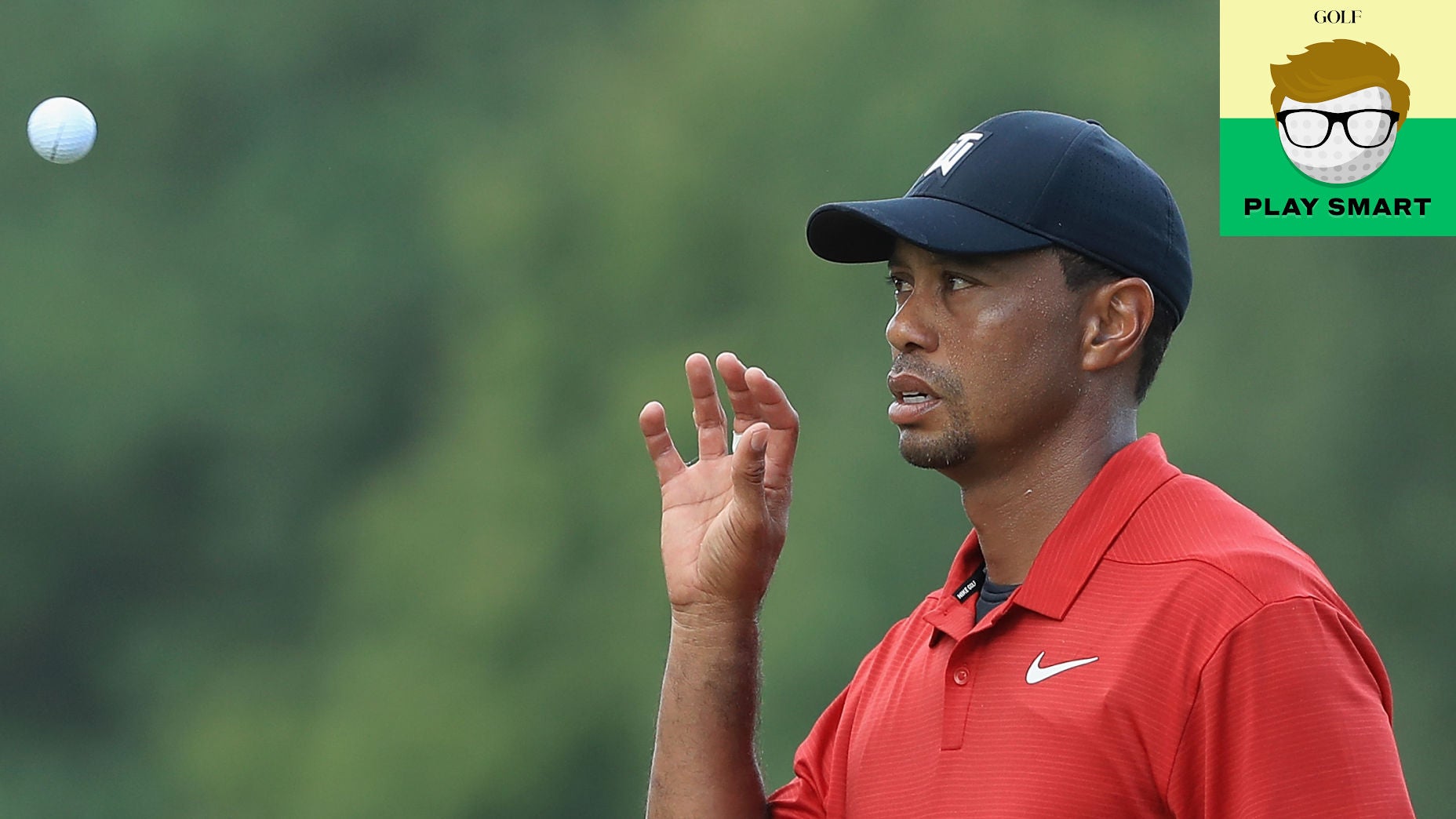Welcome to Play Smart, a game-improvement column that drops every Monday, Wednesday and Friday from Game Improvement Editor Luke Kerr-Dineen to help you play smarter, better golf.
The U.S. Open is back at Torrey Pines this week, for the first time since the most memorable moment of my life as a golf fan: Tiger Woods, sporting a broken leg and a one-shot deficit, draining a slippery 12ft birdie putt to send the contest into a playoff. If he missed, the tournament would be over, with Rocco Mediate crowned your 2008 U.S. Open champion.
But this is Tiger Woods we’re talking about. I still can’t believe this putt actually went in.
Putts like this don’t go in for any one reason. It’s a combination of technical brilliance, mental acuity, overall skill, God-given talent, and a little bit of luck. We’ve talked plenty about those first four things in regards to Tiger Woods, so today we’re interested in the fifth: Luck! And specifically, how you might be able to use it to help you play better golf.
‘I’d rather be lucky than good’
That day, Tiger had two lucky charms in-play: His Tiger headcover, and his legendary red shirt — both good items courtesy of his mother.
Golf fans for the most part consider those two things a fun, if ultimately inconsequential, factor in his game. And they’re probably right — but those two lucky items may be more than that, according to a 2010 study by Lysann Damisch, an assistant professor of psychology at the University of Cologne in Germany, published in the journal Psychological Science.
The study included three different experiments — including one golf specific one — and on each occasion found those with lucky items outperformed those who didn’t.
- In the first experiment a group of researchers “asked participants to bring a lucky charm” to a test they were going to take. Half the participants had their lucky charms taken away from them during the test; the group that kept their lucky charms for the test outperformed the other grohp.
- In the golf experiment, a group of golfers were given “lucky” golf balls by those overseeing the study and holed more putts than those using regular, non-lucky golf balls.
- And in the final experiment, two groups of people were given a “motor-dexterity” test. Half the group was told by study overseers, “I’ll keep my fingers crossed.” That group out-performed the group that didn’t receive any well-wishes.
Why lucky charms work
All of which is to say there’s some evidence that lucky charms might actually work, if nothing else, through a placebo effect. It provides a psychological boost that can increase your confidence and release tension.
“Especially in situations where people feel a bit insecure and thus want to gain some confidence,” the study’s author said.
So if you’re hitting a wall in your game and not sure what to do next, reach throw on a good luck charm and see what happens. It might just helps.
And if you don’t have one of those, from me to you: Good luck!
